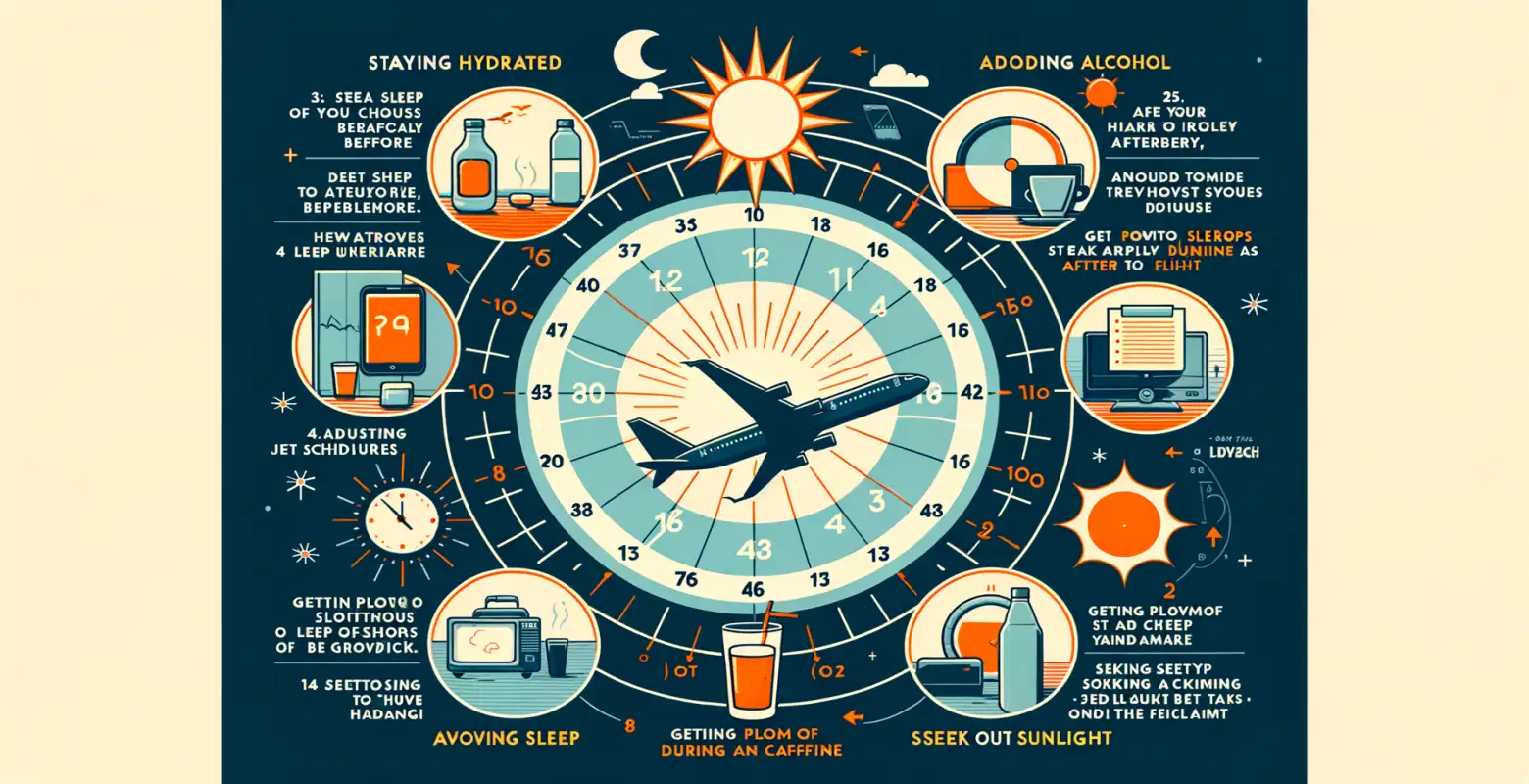How to survive jet lag after a long flight?
Introduction
Jet lag, also known as desynchronosis, is a physiological condition that can affect us after traveling across several time zones. It is a phenomenon that affects many travelers, especially those who frequently cover long distances by plane. The modern world, with its increasing globalization and ease of travel, means that more and more people experience jet lag. Understanding how to deal with it is crucial for maintaining health and well-being. In this article, we will look at the causes of jet lag, its symptoms, and proven methods for coping with this unpleasant condition.
Causes and Symptoms of Jet Lag
Jet lag is caused by a disruption of our internal biological clock, known as the circadian rhythm. This biological clock is responsible for regulating the sleep-wake cycle, as well as other bodily functions such as body temperature and hormone production. Traveling across several time zones in a short period of time causes our biological clock to not be synchronized with the new local time.
Symptoms of jet lag can vary from person to person, but most commonly include fatigue, difficulty falling asleep or waking up, disorientation, concentration problems, as well as physical discomfort such as headaches or stomach issues. The intensity of symptoms often depends on the number of time zones crossed and the direction of travel – flights eastward are usually more challenging than those westward.
How to Prepare for a Trip to Minimize Jet Lag?
Preparing for a flight begins long before boarding the plane. Here are a few strategies that can help minimize the effects of jet lag:
Adjust your sleep schedule – a few days before your trip, try gradually shifting your sleep hours towards the local time of your destination. If you're flying eastward, go to bed and wake up earlier, and if you're flying westward, do it later.
Avoid alcohol and caffeine – these substances can disrupt sleep and further strain the body during the flight. Instead, drink plenty of water to maintain proper hydration.
Plan your flights wisely – if possible, choose flights that allow you to reach your destination early in the evening. This way, you'll have time to rest before bedtime.
During the Flight: What to Do to Reduce Jet Lag?
During the flight, you can take several actions to help alleviate future symptoms of jet lag:
Ensure comfort – dress comfortably and have a travel pillow and eye mask with you to help you fall asleep. Avoid prolonged sitting in one position, which can lead to muscle pain and stiffness.
Set your watch to the local time of your destination – immediately upon boarding, adjust your watch and phone to the new time to mentally prepare for the change.
Take breaks for movement – get up and walk around the plane every few hours to improve blood circulation and reduce the risk of blood clots.
After Arrival: How to Quickly Adjust to the New Time Zone?
After arriving at your destination, following a few simple rules will help you adapt to the new time more quickly:
Expose yourself to daylight – sunlight is a natural regulator of our biological clock. Spending time outdoors during the day will help speed up the adaptation process.
Avoid napping – although it may be tempting to take a nap after a long flight, try to avoid it to not disrupt your nighttime sleep. If necessary, limit naps to 20-30 minutes.
Maintain regular meal times – eating at regular times according to the new time will help your body adjust to the new rhythm.
Technologies and Innovations Supporting the Fight Against Jet Lag
In today's world, there are many technologies and applications that can help deal with jet lag. Applications like Timeshifter offer personalized plans that help adjust sleep habits and light exposure to minimize the effects of jet lag. Devices such as smart glasses emitting therapeutic light are also gaining popularity.
Research on circadian rhythms and their impact on health is developing rapidly, providing new solutions and tips on how to best cope with jet lag. In the future, we can expect even more advanced technologies to support travelers in adapting to new time zones.
Summary
Jet lag is a common problem that can significantly affect our well-being and health after a long journey. Understanding the causes and symptoms of jet lag and implementing appropriate strategies before, during, and after the flight can greatly reduce its impact. With modern technologies and growing knowledge about circadian rhythms, we have more tools to combat jet lag. Let's remember to prepare for the journey, manage our time consciously, and take care of our bodies so that every trip is as least burdensome and as enjoyable as possible.







Number of comments: 0